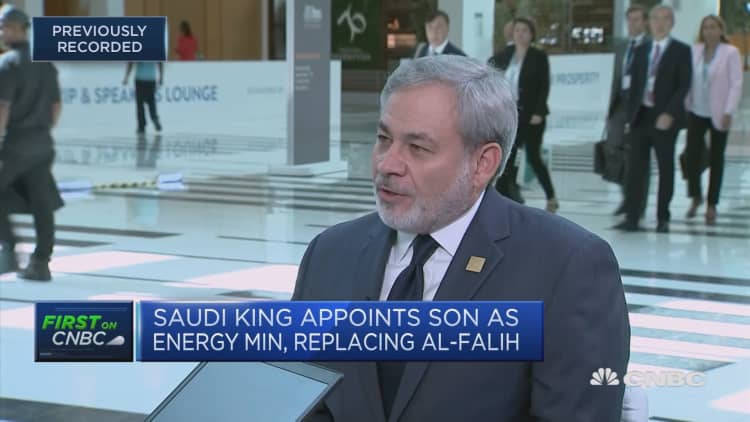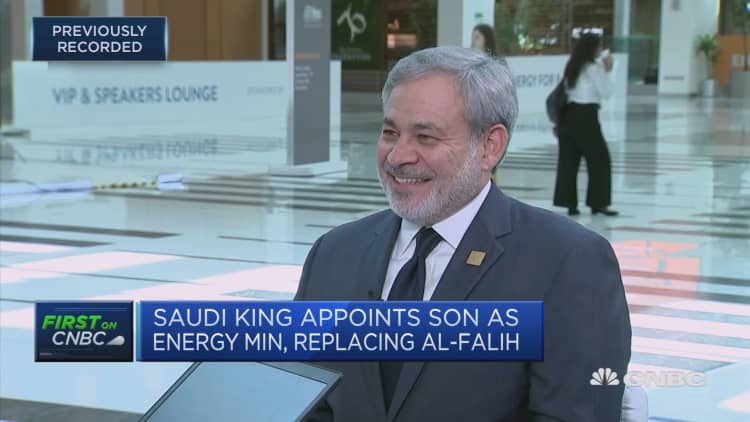
The U.S. deputy energy secretary told CNBC Monday that America wants to achieve energy dominance regardless of what happens to oil prices.
OPEC has struggled to shore up crude futures this year, amid a deteriorating outlook for global growth and a protracted trade dispute between the U.S. and China.
It has once again raised questions about whether the Middle East-dominated group really wields that much influence over world crude markets.
"Our energy policy is not designed to affect price, that's not we do for a living. And yet it does because of our production numbers," Dan Brouillette told CNBC's Hadley Gamble at the World Energy Congress in Abu Dhabi.
"The president has an 'all of the above' strategy. He talks often about energy dominance and the world often asks: what does that mean? It just simply means that we are going to produce as much energy as we can, as cleanly as we can and as affordably as we can."
"And whatever happens to the world price of oil, whatever happens to the world price of whatever, electricity, it doesn't really matter, then so be it," Brouillette said.
In the last decade, the U.S. has more than doubled oil production to 12.3 million barrels a day, making it the world's largest producer.
It now appears set to flood the oil market with even more crude, putting downward pressure on prices at a time when it is already struggling to cope with too much supply.
International benchmark Brent crude traded at $62.12 Monday morning, up around 0.9%, while U.S. West Texas Intermediate (WTI) stood at $57.17, up more than 1.1%.

'Tough road ahead' for Saudi Arabia's new energy minister
Oil prices rose for a fourth consecutive session on Monday, amid expectations that Saudi Arabia would continue to support OPEC-led output cuts under new Energy Minister Prince Abdulaziz bin Salman.
The appointment, announced Sunday, represents the first time a member of the ruling Al Saud family has held the energy minister post in the world's top oil exporter.
As a veteran of OPEC policy-making, Prince Abdulaziz is not expected to change the kingdom's oil policy, since he helped negotiate the current agreement between OPEC and non-OPEC countries to cut global crude supply to support prices and balance the market, Reuters reported, citing analysts.
"He's got a very tough road ahead of him, I must say. U.S. production will continue to go up all throughout 2019 and certainly to 2020," Brouillette said.
Citing data from the U.S. Energy Information Administration (EIA), Brouillette said America was on track to pump more than 13 million barrels per day this year and possibly as much as 13.5 million barrels per day in 2020.
"That will have a profound impact on pricing — so he does have his work cut out for him."
OPEC and allied non-OPEC partners, sometimes referred to as OPEC+, will meet in Abu Dhabi later this week to review their progress in stabilizing world oil markets.
The meeting is likely to provide crucial clues about how far some of OPEC's most powerful players are willing to go to get prices on a firmer footing.
The full coalition will then gather again in Vienna at the end of the year to decide whether any further action is required for 2020.
OPEC+ is expected to reaffirm its commitment to rebalancing the market at its September 12 meeting.
Alongside Russia and other allied producers, OPEC agreed to reduce output by 1.2 million barrels a day at the beginning of 2019. That deal replaced a previous round of production cuts that began in January 2017.


